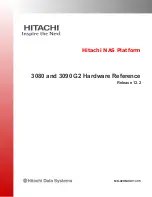
Features
90
Datasheet
In response to entering Deeper Sleep, the processor drives the VID code corresponding
to the Deeper Sleep core voltage on the VID pins. Unlike typical Dynamic VID changes
(where the steps are single VID steps) the processor will perform a VID jump on the
order of 100 mV. To support the Deeper Sleep State the platform must use a VRD 11.1
compliant solution.
6.2.8
Enhanced Intel SpeedStep
®
Technology
The processor supports Enhanced Intel SpeedStep Technology. This technology enables
the processor to switch between frequency and voltage points, which may result in
platform power savings. To support this technology, the system must support dynamic
VID transitions. Switching between voltage/frequency states is software controlled.
Enhanced Intel SpeedStep Technology is a technology that creates processor
performance states (P states). P states are power consumption and capability states
within the Normal state as shown in
. Enhanced Intel SpeedStep Technology
enables real-time dynamic switching between frequency and voltage points. It alters
the performance of the processor by changing the bus to core frequency ratio and
voltage. This allows the processor to run at different core frequencies and voltages to
best serve the performance and power requirements of the processor and system. Note
that the front side bus is not altered; only the internal core frequency is changed. In
order to run at reduced power consumption, the voltage is altered in step with the bus
ratio.
The following are key features of Enhanced Intel SpeedStep Technology:
• Voltage/Frequency selection is software controlled by writing to processor MSR's
(Model Specific Registers), thus eliminating chipset dependency.
— If the target frequency is higher than the current frequency, Vcc is incremented
in steps (+12.5 mV) by placing a new value on the VID signals after which the
processor shifts to the new frequency. Note that the top frequency for the
processor can not be exceeded.
— If the target frequency is lower than the current frequency, the processor shifts
to the new frequency and Vcc is then decremented in steps (-12.5 mV) by
changing the target VID through the VID signals.
6.3
Processor Power Status Indicator (PSI) Signal
The processor incorporates the PSI# signal that is asserted when the processor is in a
reduced power consumption state. PSI# can be used to improve efficiency of the
voltage regulator, resulting in platform power savings.
PSI# may be asserted only when the processor is in the Deeper Sleep state.
§
Summary of Contents for BX80571E5300 - Pentium 2.6 GHz Processor
Page 12: ...Introduction 12 Datasheet...
Page 32: ...Electrical Specifications 32 Datasheet...
Page 34: ...Package Mechanical Specifications 34 Datasheet Figure 6 Processor Package Drawing Sheet 1 of 3...
Page 35: ...Datasheet 35 Package Mechanical Specifications Figure 7 Processor Package Drawing Sheet 2 of 3...
Page 36: ...Package Mechanical Specifications 36 Datasheet Figure 8 Processor Package Drawing Sheet 3 of 3...
Page 40: ...Package Mechanical Specifications 40 Datasheet...
Page 74: ...Land Listing and Signal Descriptions 74 Datasheet...
Page 84: ...Thermal Specifications and Design Considerations 84 Datasheet...










































